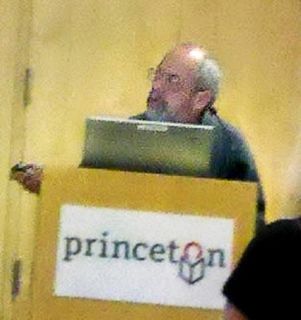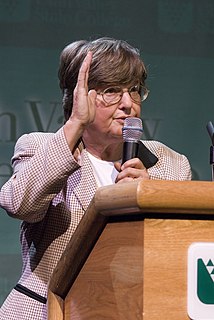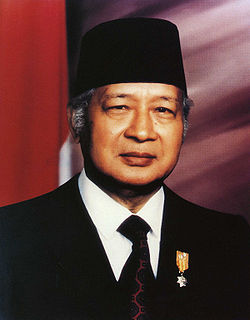A Quote by Gregory S. Paul
A growing body of social science research reveals that atheists, and non-religious people in general, are far from the unsavory beings many assume them to be. On basic questions of morality and human decency - issues such as governmental use of torture, the death penalty, punitive hitting of children, racism, sexism, homophobia, anti-Semitism, environmental degradation or human rights - the irreligious tend to be more ethical than their religious peers, particularly compared with those who describe themselves as very religious.
Quote Topics
Anti
Anti-Semitism
Assume
Atheists
Basic
Beings
Body
Children
Compared
Death
Death Penalty
Decency
Degradation
Describe
Environmental
Environmental Degradation
Ethical
Far
General
Growing
Hitting
Homophobia
Human
Human Rights
Issues
Many
Morality
More
Particularly
Peers
Penalty
People
Questions
Racism
Religious
Religious People
Research
Reveals
Rights
Science
Science Research
Sexism
Social
Social Science
Tend
Than
Them
Themselves
Those
Torture
Use
Very
Related Quotes
My point is you can fight racism and sexism and homophobia more effectively if you're doing it from the position that you're standing for the dignity of all people, and that you're actually standing for the underdog in the red states and the blue states. I think it's more effective when you're anti-racism and anti-sexism and anti-homophobia and that is the centerpiece for a project to uplift all humanity, and frankly to defend and uplift the children of all species.
Blind obedience is itself an abuse of human morality. It is a misuse of the human soul in the name of religious commitment. It is a sin against individual conscience. It makes moral children of the adults from whom moral agency is required. It makes a vow, which is meant to require religious figures to listen always to the law of God, beholden first to the laws of very human organizations in the person of very human authorities. It is a law that isn't even working in the military and can never substitute for personal morality.
It is terrible that we all die and lose everything we love; it is doubly terrible that so many human beings suffer needlessly while alive. That so much of this suffering can be directly attributed to religion—to religious hatreds, religious wars, religious delusions and religious diversions of scarce resources—is what makes atheism a moral and intellectual necessity.
One odd thing about the current debate between religious people and atheists is that the participants don't seem to care that they entirely fail to communicate with the other side. They therefore have no account of why the religious or the atheists believe what they do, except that they are stupid or deluded. I think philosophers should try and make sense of their disputes with their opponents as far as possible without treating them as idiots. This applies to the religious participants in the debate as much as to the atheists.
the scientist's religious feeling takes the form of a rapturous amazement at the harmony of natural law, which reveals an intelligence of such superiority that, compared with it, all the systematic thinking and acting of human beings is utterly insignificant reflection. This feeling is the guiding principle of his life and work, in so far as he succeeds in keeping himself from the shackles of selfish desire. It is beyond question closely akin to that which has possessed the religious geniuses of all ages.
Most religious people in America fully embrace science. So the argument that religion has some issue with science applies to a small fraction of those who declare that they are religious. They just happen to be a very vocal fraction, so you got the impression that there are more of them than there actually is.
More fundamental than religion is our basic human spirituality. We have a basic human disposition towards love, kindness and affection, irrespective of whether we have a religious framework or not. When we nurture this most basic human resource - when we set about cultivating those basic inner values which we all appreciate in others, then we start to live spiritually.
All my life I have made it a rule never to permit a religious man or woman take for granted that his or her religious beliefs deserved more consideration than non-religious beliefs or anti-religious ones. I never agree with that foolish statement that I ought to respect the views of others when I believe them to be wrong.
If you go back far enough and get a wider enough picture of history, we have let go of many things that follow a religious narrative. We don't burn witches anymore. Most people would consider that barbaric. We don't sacrifice human beings, which was a religious act practiced by numerous cultures on this planet.
The great religious ages were notable for their indifference to human rights... not only for acquiescence in poverty, inequality, exploitation and oppression, but also for enthusiastic justifications for slavery, persecution, abandonment of small children, torture, and genocide... Moreover, religion enshrined hierarchy, authority, and inequality... It was the age of equality that brought about the disappearance of such religious appurtenances as the auto-da-fe and burning at the stake.



































